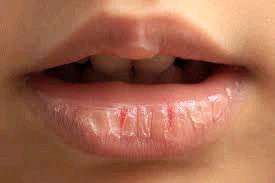Dry lips can be uncomfortable and unsightly, but what causes them? Unlike other skin types, lips don’t have oil glands, making them more prone to drying out and cracking. Let’s explore the top 4 reasons why you get dry lips:
1. Weather and Wetness
Environmental factors like low humidity, cold weather, and excessive sun exposure can dry out your lips. Dry weather and UV damage are common culprits. So, protect your lips with a lip balm or chapstick, especially during harsh weather conditions.
2. Habitual Lip-Licking
Lip-licking may seem harmless, but it can actually remove more moisture from your lips, making them even drier. Try to break the habit and find other ways to cope with stress or anxiety.
3. Diet and Food Sensitivities
Eating spicy or salty foods can dry out your lips. Salt can suck moisture from your lips, while spicy foods can irritate them. Dr. Day notes that salty foods, especially those with high salt content on the outside, can impact the skin on your lips. Be mindful of your diet and try to limit your intake of spicy and salty foods.
4. Medications and Environmental Irritants
Certain medications, like cholesterol-lowering drugs, can cause dry lips as a side effect. Additionally, environmental irritants like pollution, tobacco smoke, and chemicals can dry out your lips. Be aware of your surroundings and take steps to minimize exposure to harmful substances….S££ MOR£
Women Find It Hard To Resist These 4 Qualities In Men

